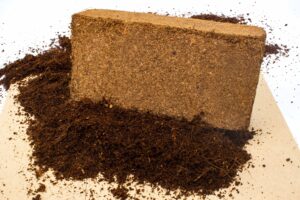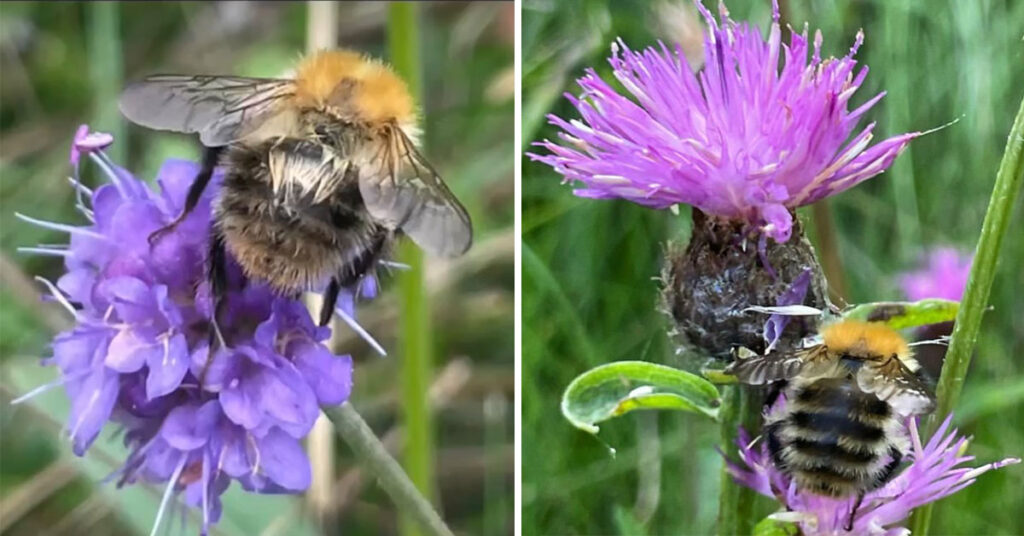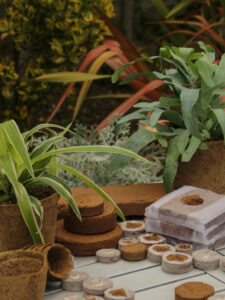
Nutrient-rich Coir Plus from CoirProducts to help your garden thrive
CoirProducts’ newly introduced all-purpose coir potting mix, Coir Plus, not only brings you thesustainable goodness of coir, but also comes enriched with NPK (Nitrogen, Phosphorus,

To mark World Bee Day, which falls on May 20th, we’re sharing a wonderful blog post on bee-keeping and what growers and gardeners can do to help protect bees. This blog post is courtesy of Wild Heart Hill.
Bees are some of the most fascinating creatures on the planet. Ancient beekeepers were thought to be the closest thing to God by the church and it was said that witches believed that if bees died, then we would too. Little did they realise how right they were. Honey was found in the Egyptian pyramids, Cleopatra bathed in it to keep her beauty and Alexander the Great’s body was preserved in it after his death.
Keeping bees is an addictive hobby. The more you find out about them, the more you want to know about them and the more bees you want to look after. My dad got me into bees. Firstly through my then three year old daughter; buying her a bee suit (which was far too big for her but did the job) and showing us both the magic and the endless wonder that they bring to your life. I then started to explore the many types of bees; there are more than 25,000 different species, their fascinating place in history; spanning every age and religion, and then the benefits of bee products – did you know honey is antibacterial and antifungal?
My dad also taught me to take beekeeping seriously. Warning me that if I did not look after the bees properly I could wipe out entire colonies in the area. Bees, whether wild or farmed, are critical pollinators. Many of our food crops depend on insect and animal pollination to some degree, and pollinators are essential for growing many different fruits, nuts and berries. In the UK there are around 70 crops that depend on bees for pollination. In the past 70% of pollination used to be done by honey bees, but this has dropped to a scary 34%.
However, in our own ways we can all do something to help the bees. Here at Wild Heart Hill we have planted more than 2,000 trees over the last two years. We specifically chose trees that have good blossoms, which will support bees. We have also looked into plants that flower early in the year or later into the autumn when the bees have less to forage on – to help get them through the long winter and survive for another year. Using pesticides is an absolute no, and buying organic food whenever we can also helps. We also practice ‘no mow May’, often extending it before and after May so that all pollinators have a bit more choice and the wild flowers thrive. It’s always exciting to see what pops up in the long grass.
So next time you are thinking of growing some more plants or vegetables, why don’t you take the time to consider when they flower and whether bees can forage on them? That way you will be playing your part in helping the survival of one of the cutest of our insects, and ultimately mankind.
You can learn more about Will Heart Hill on their links below –
Facebook: www.facebook.com/wildhearthillcamp
Instagram: www.instagram.com/wildhearthill

CoirProducts’ newly introduced all-purpose coir potting mix, Coir Plus, not only brings you thesustainable goodness of coir, but also comes enriched with NPK (Nitrogen, Phosphorus,

In a world grappling with food insecurity and environmental degradation, sustainable gardening practices continue to play an important role. With an array of eco-friendly gardening